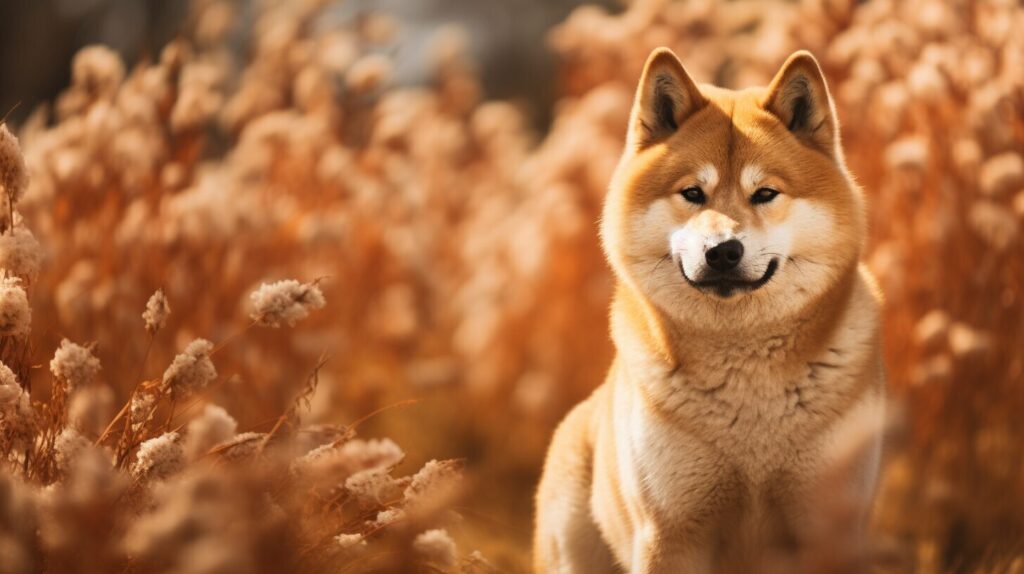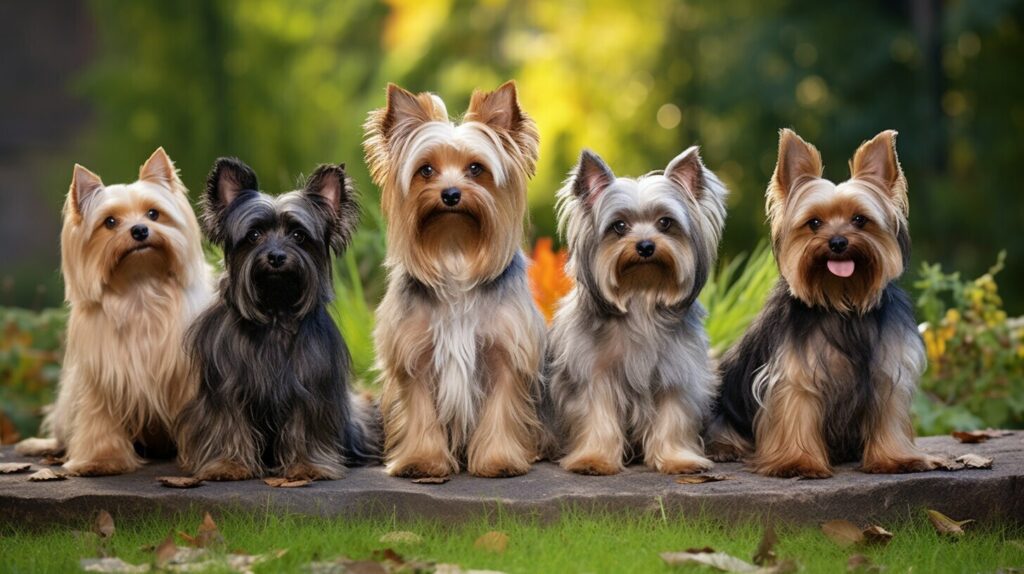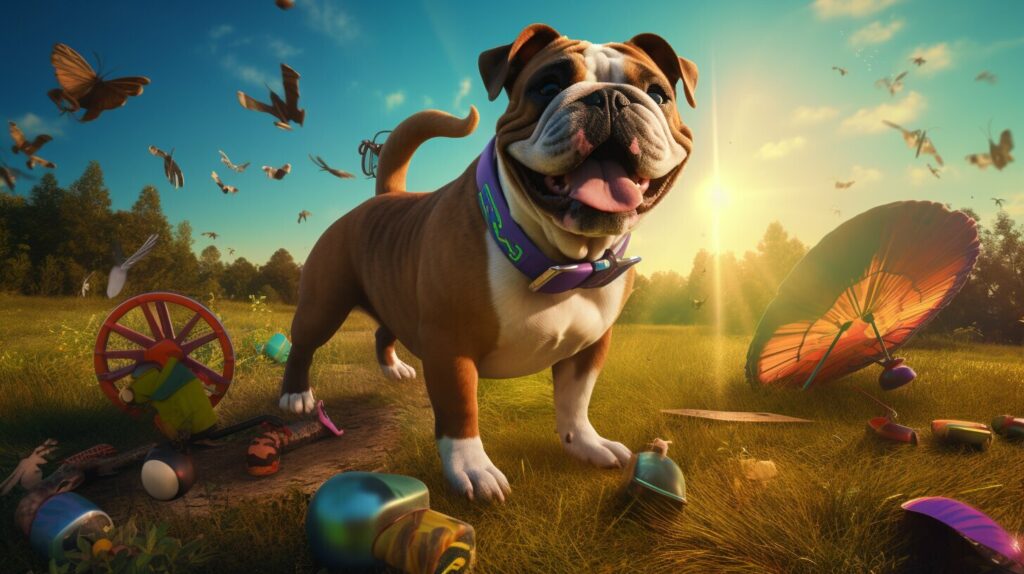If you’re looking for a loyal, intelligent, and protective breed of dog, look no further than the Akita. These beautiful and elegant dogs have captured the hearts of owners around the world with their stunning physical appearance and unique temperament.
In this article, we’ll delve into the world of Akita dogs, exploring their history, characteristics, and care requirements. From finding the perfect Akita puppy to training and socialization, we’ll cover everything you need to know about this incredible breed.
Key Takeaways:
- Akita dogs are known for their loyalty, intelligence, and protective nature.
- The breed originated in Japan, where they were used for hunting and guarding.
- Caring for an Akita requires regular exercise, grooming, and healthcare.
- Training an Akita can be challenging due to their independent and stubborn nature.
- Akita dogs can make excellent working and service animals.
Understanding the Akita Breed
As an Akita owner or potential owner, it’s crucial to understand the temperament and characteristics of this breed. Akitas are known for their loyalty, intelligence, and protective nature. They are also known to be independent and stubborn, making training and socialization important factors in their upbringing.
In terms of physical appearance, Akitas are large dogs with a sturdy build. They typically weigh between 70-130 pounds and stand 24-28 inches tall at the shoulder. Their thick coat can come in a variety of colors, including white, black, brindle, and red.
Akitas are naturally reserved and can be aloof with strangers. This is a trait that has been ingrained in them from their origins as hunting and guarding dogs in Japan. But with proper socialization and training, Akitas can learn to be friendly and accepting of new people and situations.
It’s important to note that Akitas have a strong prey drive and may not be suitable for households with small pets such as cats or rabbits. They also require regular exercise and mental stimulation to keep them happy and healthy.
Overall, Akitas make wonderful companions for the right owner who is willing to put in the time and effort to properly care for and train them. By understanding their temperament and characteristics, you can provide them with the love and support they need to thrive.
The History of Akita Dogs
Akita dogs have a rich history originating in Japan as hunting and guarding dogs. The breed was named after the Akita prefecture where they were developed. Akita dogs were bred to be strong, independent, and loyal. They were originally used to hunt large game, such as wild boar and bears, and were also trained for police and military work.
In the mid-19th century, the Akita breed was crossed with other breeds, such as the Mastiff and Tosa, resulting in a larger and more powerful dog. During World War II, many Akita dogs were killed for their fur, and the breed was close to extinction. However, a group of breeders worked to save the Akita from being lost forever.
Akita dogs were first introduced to the United States in 1937, and the breed was officially recognized by the American Kennel Club in 1972. Today, Akita dogs are popular pets and can also be trained to work as service dogs.
Akita Breeders
When looking for Akita breeders, it is important to do thorough research to find a reputable breeder who prioritizes the health and well-being of their dogs. Look for breeders who are knowledgeable about the breed and can provide information about the dog’s lineage, temperament, and any potential health issues.
Akita dog breed information can also be obtained from breed clubs, such as the Akita Club of America, which provides resources and support for Akita owners and breeders. These clubs can also provide referrals to reputable breeders in your area.
Caring for Your Akita at Home
Proper care and maintenance are crucial to ensuring your Akita remains healthy and happy. Here are some tips to help you take care of your furry friend:
Akita Care Tips
Regular exercise is essential for your Akita’s well-being. Plan for daily walks and consider outdoor activities like hiking or swimming to keep them physically active and mentally stimulated. A fenced yard is also ideal for playtime and exercise.
Proper grooming is important to maintain your Akita’s coat and skin health. Regular grooming includes weekly brushing, monthly nail trimming, and monthly ear cleaning. A bath every few months will also help keep your Akita’s coat clean and shiny.
Akita Health Tips
Regular check-ups with a veterinarian are essential for your Akita’s health and well-being. Vaccinations, routine check-ups, and dental cleanings are all important parts of preventative care.
Akita dogs are prone to certain health issues, such as hip dysplasia and progressive retinal atrophy. Be sure to discuss any potential health concerns with your veterinarian and inquire about proper screening and testing.
Proper nutrition is also vital for your Akita’s health. Provide a balanced diet with high-quality protein and avoid overfeeding to maintain a healthy weight.
By following these tips, you can ensure that your Akita remains healthy and well-cared for in their forever home.
Training an Akita Dog:
Training an Akita dog can be a rewarding experience, but it requires patience and persistence. Due to their independent and stubborn nature, Akita dogs may be challenging to train, especially for inexperienced owners.
Positive reinforcement is the most effective training method for Akita dogs. Rewarding good behavior with treats, praise, or playtime can motivate your Akita and help them learn faster. Punishing or scolding your Akita can be counterproductive, leading to fear and aggression.
Consistency is key when training your Akita. Training sessions should be short and frequent, ideally happening every day. Keep the training environment quiet and free of distractions, so your Akita can focus on learning.
Socialization is also essential for a well-adjusted Akita. Introduce your Akita to new people, places, and pets from an early age. This will help them develop social skills and prevent potential aggression towards strangers or other animals.
Finally, enrolling your Akita in obedience classes or working with a professional trainer can be beneficial. They can provide expert guidance and advice on how to train your Akita effectively and address any behavioral issues that may arise.
Finding the Perfect Akita Puppy
Choosing an Akita puppy is an exciting yet crucial decision that requires careful consideration. To ensure a healthy and well-adjusted pet, it’s important to find a reputable breeder. Start by researching Akita breeders near you, asking for recommendations from friends or family members, or contacting breed clubs or organizations.
When evaluating potential breeders, pay attention to how they care for their dogs and puppies. Ask about health screenings and genetic testing, as well as the puppies’ socialization and training. A good breeder will be happy to answer your questions and provide references.
When meeting potential puppies, observe their behavior and temperament. Look for a puppy that is confident, curious, and friendly, but not overly aggressive or fearful. Keep in mind that Akitas can be stubborn, so it’s important to choose a puppy that is eager to learn and respond to training.
Before bringing your new puppy home, make sure you have prepared everything you need, including a crate, food and water bowls, toys, and a comfortable bed. Be prepared to provide regular exercise, grooming, and veterinary check-ups to keep your Akita healthy and happy.
Akita Dogs and Family Life
If you’re considering adding an Akita dog to your family, it’s important to understand their temperament and care requirements. Akitas are known for their loyalty and protective nature towards their families. They are also independent and can be stubborn at times, which may require patience and training.
When introducing an Akita to children or other pets, it’s crucial to socialize them properly from a young age. This means exposing them to various experiences and people, so they can learn how to interact appropriately. Training is also essential for a well-adjusted family dog.
Akitas require regular exercise, so providing a daily walk or playtime is crucial to their well-being. They also have a thick double coat that requires weekly grooming to prevent matting and shedding.
If you’re willing to put in the time and effort to care for your Akita properly, they can make a loyal and loving addition to your family. With their beauty and elegance, Akita dogs are sure to capture your heart.
FAQs About Akita Dogs
If you’re considering adding an Akita dog to your family, you likely have questions about the breed. Here are some of the most commonly asked questions about Akita dogs:
- What is the temperament of Akita dogs? Akitas are known for their loyalty and protective nature, but they can also be independent and stubborn. Early socialization and training, along with a consistent and patient approach, can help develop a well-adjusted Akita dog.
- What kind of care do Akita dogs require? Akitas have a thick double coat that requires regular brushing and grooming to maintain its health and appearance. They also need plenty of exercise, and a nutritious diet to stay healthy. Regular check-ups with a veterinarian are essential to ensure your Akita dog is in good health.
- What health issues are common in Akita dogs? Akitas are generally healthy dogs, but they may be prone to certain health issues like hip dysplasia, eye problems, and autoimmune diseases. Working with a reputable Akita breeder and keeping up with regular veterinary check-ups can help prevent or manage potential health issues.
- Are Akita puppies easy to train? Akitas can be challenging to train due to their independent nature. Consistency and positive reinforcement techniques are key to effectively training an Akita puppy. It’s important to start training early and be patient and persistent in your approach.
- Where can I find a reputable Akita breeder? Researching and finding a reputable Akita breeder is crucial to ensure you get a healthy and well-adjusted puppy. Look for breeders who are transparent about their breeding practices and offer health screenings and genetic testing. Reputable breeders may also be members of breed-specific clubs and organizations.
- What should I know about the Akita breed? Akitas are a loyal and protective breed that require plenty of socialization, training, and exercise to thrive. They have a unique history as hunting and guarding dogs in Japan and require a consistent and patient approach to training and care.
Akita Dogs as Working and Service Animals
Akita dogs are known for their exceptional temperament and intelligence, making them a popular choice as working and service animals. If you’re looking for a dog with protective instincts and a strong work ethic, the Akita breed may be the perfect fit for you.
When it comes to finding a reputable Akita breeder for a working dog, it’s essential to consider their experience and expertise in breeding dogs for specific tasks. Look for a breeder who has a solid understanding of the breed’s temperament, physical capabilities, and working potential.
Akita dogs are highly trainable and excel in various roles, such as search and rescue, therapy work, and even as police dogs. They have a natural instinct to protect, making them ideal for tasks that require vigilance and loyalty.
But despite their capabilities, not every Akita is suited for working or service roles. It’s crucial to evaluate a dog’s temperament and personality traits before assigning them any demanding tasks. Proper training, socialization, and exposure to different environments can help determine a dog’s suitability for specific roles.
Overall, Akita dogs are a fantastic choice for anyone looking for a loyal and capable working or service animal. With proper care, training, and guidance, they can excel in various roles and become invaluable members of the community.
Conclusion
Now that you have delved into the world of Akita dogs, you have discovered their beauty and elegance as a breed. You have gained an understanding of their unique characteristics, including their loyalty, intelligence, and protective nature. You have explored their rich history in Japan and their potential roles as working or service animals.
As you consider adding an Akita to your family, remember to properly care for them at home by providing adequate exercise, grooming, and healthcare. When training your Akita, use positive reinforcement techniques and remain patient and consistent. And when selecting an Akita puppy, be sure to find a reputable breeder and evaluate the puppy’s temperament and health.
Akita dogs can be a wonderful addition to a family, bringing loyalty, protection, and joy. Although they may require some extra care and attention, their unique personalities and beauty make it all worthwhile. So why not explore the world of Akita dogs and discover the joys they can bring to your life?
FAQ
Q: What are the characteristics of Akita dogs?
A: Akita dogs are known for their loyalty, intelligence, and protective nature. They have a strong physical appearance, are a medium to large size breed, and can have different coat types.
Q: Where do Akita dogs originate from?
A: Akita dogs have their roots in Japan, where they were originally used as hunting and guarding dogs. They have a rich history and are considered a national treasure in Japan.
Q: How do I properly care for an Akita at home?
A: To care for an Akita at home, make sure to provide them with regular exercise, groom them regularly, and feed them a balanced diet. Regular check-ups with a veterinarian are also crucial for their overall health.
Q: Are Akita dogs good with children and other pets?
A: Akita dogs can be good with children and other pets if they are properly socialized and trained from a young age. However, their protective nature should be taken into consideration and supervision is recommended.
Q: How can I find a reputable Akita breeder and select the right Akita puppy?
A: It is important to do thorough research to find a reputable Akita breeder. Look for breeders who prioritize health screenings and genetic testing. When selecting an Akita puppy, evaluate their temperament and personality traits to find the right match for your lifestyle.
Q: Can Akita dogs be trained easily?
A: Akita dogs can be independent and stubborn, which can make training a challenge. However, with consistent and positive reinforcement training methods, they can be trained effectively.
Q: Are there any specific roles that Akita dogs excel in?
A: Akita dogs have been successful in various working and service roles. They are highly intelligent and trainable, making them suitable for tasks such as search and rescue or therapy work.



